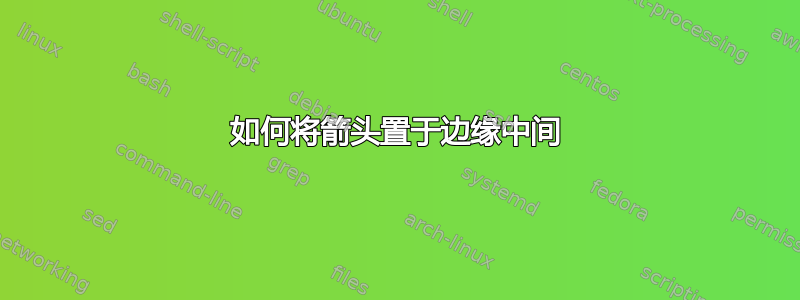
\documentclass[12pt, a4paper]{article}
\usepackage{graphicx}
\usepackage{amsfonts}
\usepackage{amsbsy}
\usepackage{amssymb}
\usepackage{amsmath}
\usepackage{pst-all}
\usepackage{pstricks}
\usepackage{graphics}
%\usepackage{showkeys}
%\usepackage[notref]{showkeys}
\usepackage{epsfig}
\usepackage{tkz-euclide}
\usepackage{tgbonum}
\usepackage{tikz}
\usepackage{pifont,geometry,txfonts}
\usepackage{hyperref}
%\usepackage{showkeys}
\renewcommand{\baselinestretch}{1.23}
\newcommand{\arrowIn}{
\tikz \draw[-stealth] (-4pt,0) -- (4pt,0);
}%%%%%%%%%%%%%%%%%%%%%%%%%%%%%%%%%%%
\setlength{\textheight}{220mm}
\setlength{\textwidth}{140mm}
%% Common extra environments
\usepackage[numbers,sort&compress]{natbib}% Citation support using natbib.sty
\bibpunct[, ]{[}{]}{,}{n}{,}{,}% Citation support using natbib.sty
\renewcommand\bibfont{\fontsize{10}{12}\selectfont}% Bibliography support using natbib.sty
\makeatletter% @ now becomes a letter
\def\NAT@def@citea{\def\@citea{\NAT@separator}}% Macro to suppress spaces between citations using
%natbib.sty
\makeatother% @ becomes a symbol again
\def\M{\mathcal{M}}
\def\U{\mathcal{U}_{g}}
%\theoremstyle{plain}% Theorem-like structures provided by amsthm.sty
\newtheorem{theorem}{Theorem}[section]
\newtheorem{lemma}[theorem]{Lemma}
\newtheorem{corollary}[theorem]{Corollary}
\newtheorem{proposition}[theorem]{Proposition}
%\theoremstyle{definition}
\newtheorem{definition}[theorem]{Definition}
\newtheorem{example}[theorem]{Example}
%\theoremstyle{remark}
\newtheorem{remark}{Remark}
\newcommand{\bcomma}{,\allowbreak}
\renewcommand{\baselinestretch}{1.2}
%\renewcommand{\qedsymbol}{$\blacksquare$}
\def\M{\mathcal{M}}
%\DeclareUnicodeCharacter{2212}{-}
%\theoremstyle{definition}
%\newtheorem{definition}{Definition}[section]
\def\w{{\sf w}}
%\begin{document}
\begin{document}
\tikzset{every path/.style=thick,
acteur/.style={
circle,
fill=black,
thick,
inner sep=1pt,
minimum size=.13cm
},
curvy line/.style={decorate,,rounded corners=2pt,decoration={random steps,segment length=3mm,
amplitude=1mm}}}
\tikzset{curvy line/.style={decorate,decoration={snake,segment length=8.5mm,
amplitude=1mm}}}
\begin{figure}[hbt!]
\begin{center}
\begin{tikzpicture}[scale=.8,every label/.append style={font=\scriptsize}]
\begin{scope}
\node (a5) at (3,3) [acteur,label=below:{}]{};
\node (a19) at (3.3,6.5) [acteur,label=right:{}]{};
\node (a7) at (2.25,5) [acteur,label=above:{}]{};
\node (a13) at (1.5,3) [acteur,label=above left:{}]{};
\node (a14) at (4.25,5) [acteur,label=above:{$x$}]{};
\node (a15) at (6.25,5) [acteur,label=above:{$x'$}]{};
\node (a16) at (8.45,5) [acteur,label=above left:{}]{};
\node (a17) at (11,3.6) [acteur,label=above left:{}]{};
\draw [-{Stealth[scale=1.5]}] [green](a13) -- (a5);
\draw [red] [dashed](a5) -- (a7);
\draw [dashed][red] (a7) -- (a13);
\draw[red] (2.25,5) -- (a19);
\draw [dashed][red](2.25,5) -- (2.5,6.65);
\draw [dashed][red](2.25,5) -- (1.9,6.65);
\draw [dashed][red](2.25,5) -- (2.2,6.65);
\draw [dashed][red](8.45,5) -- (11,5.4);
\draw [red][dashed](8.45,5) -- (11,4.7);
\draw [red][dashed](8.45,5) -- (11,5);
\draw [red](8.45,5) -- (a17);
\draw[red] [dashed] (2.25,5) -- (a14);
\draw[red] (a15) -- (a14);
\draw[red] [dashed] (a15) -- (a16);
\draw[dotted] (.5,6.5) .. controls (2.2,3.8) .. (3.9,6.5);
\draw[dotted] (9.8,6.5) .. controls (7.8,5) .. (9.8,2.8);
\draw[dashed][red] (11.1,5) circle (.7);
\draw[dashed][red] (2.25,6.9) circle (.7);
\node at (2.2,7.2) {\scriptsize{$T$}};
\node at (11.5,4.9) {\scriptsize{$T'$}};
\end{scope}
\end{tikzpicture}
\end{center}
\end{figure}
\end{document}
Here I am trying to put the sign of arrow in the middle of the green edge. How we can do this?
Here I am trying to put the sign of arrow in the middle of the green edge. How we can do this?
答案1
这个问题之前已经回答过了这里。
使用装饰库在绿线中间画一个箭头,替换这个:
\draw [-{Stealth[scale=1.5]}] [green](a13) -- (a5);
这样:
\draw[green,
decoration={markings,mark=at position 0.7 with {\arrow{Stealth[scale=1.5]}}},
postaction={decorate}] (a13) -- (a5);



